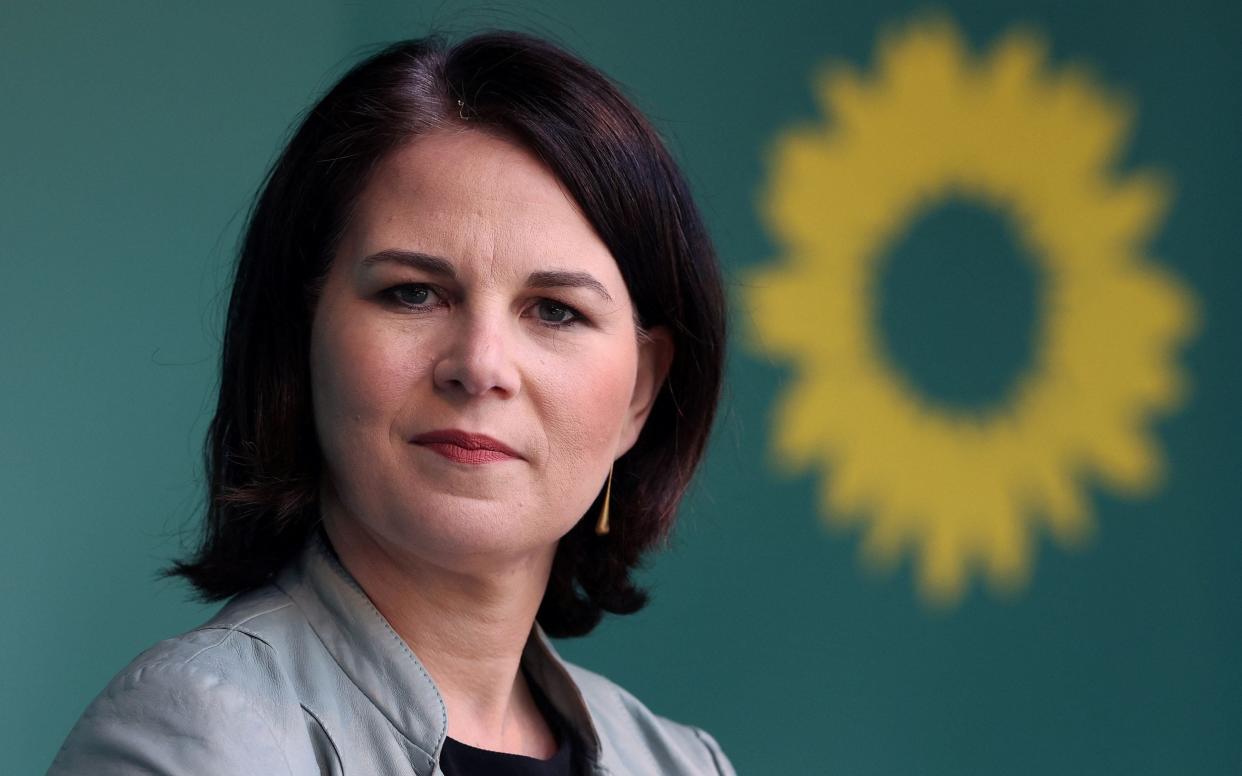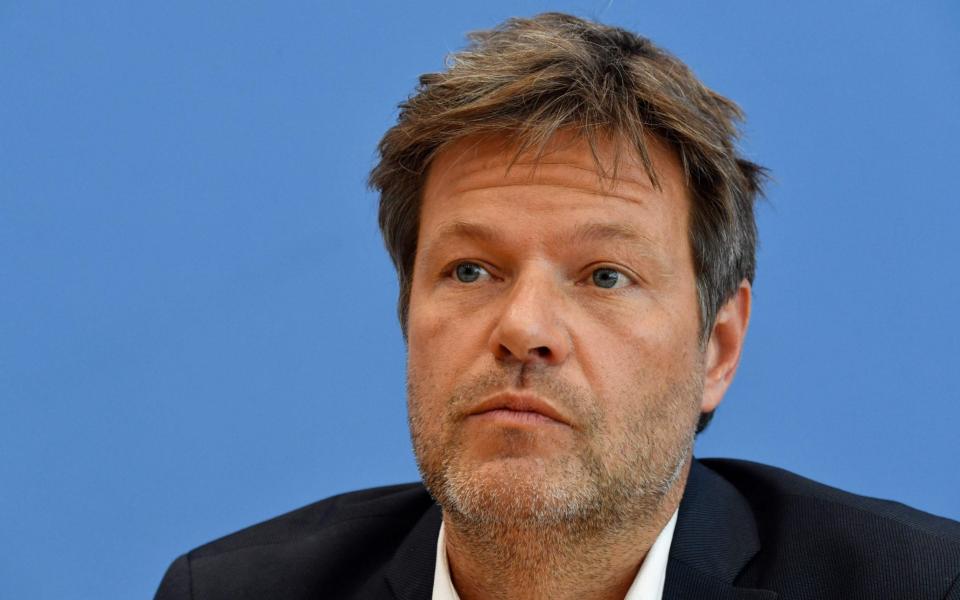Honeymoon over for Germany's Green party leader as poll lead melts over petrol price row

- Oops!Something went wrong.Please try again later.
- Oops!Something went wrong.Please try again later.
- Oops!Something went wrong.Please try again later.
The honeymoon appears to be over for Annalena Baerbock, the Green Party candidate to succeed Angela Merkel as chancellor of Germany in September.
A new poll has the Greens in second place on 22 per cent, a full seven points behind Mrs Merkel’s Christian Democrats (CDU), who are on 29 per cent.
The Green Wave that briefly carried the party to the top of the polls in the wake of Ms Baerbock’s nomination appears to be fading.
Just over a month ago, the roles were reversed: the Greens were in the lead with 30 per cent, ahead of the CDU on 24 per cent in the same poll by Civey for Spiegel magazine.
But the Greens have been through tough weeks since then, amid unpopular policy announcements and admissions by Ms Baerbock she broke parliamentary rules on declaring income.

Green plans to raise the price of petrol by 16 cents (14p) a litre have proved particularly damaging. The Greens want to reduce car use and a longstanding pledge to introduce a 130kmh (81mph) speed limit on the German motorways does not appear to have hurt them in the polls.
But petrol prices have already risen steeply in recent months and the prospect of a further hike proved too much for many voters. A poll found 72 per cent of Germans were against the Greens’ proposed price rise, with just 24 per cent in favour
The Greens have also been hit by a spat between Ms Baerbock and Robert Habeck, the man she narrowly beat to the party’s chancellor candidacy, over Ukraine.
Mr Habeck recently called for Germany to end its current ban on arms sales to Ukraine and allow exports for “self-defence” against Russia.
The proposal was a break with the Greens’ pacifist principles and Ms Baerbock swiftly slapped it down, but the damage was already done, and the Greens’ carefully cultivated image of unity is a thing of the past.
Ms Baerbock’s admission last month that she had failed to declare her income properly to parliament didn’t help either.
The Greens have long boasted that they don’t pay their party leaders on the grounds their salaries as MPs should be enough. But it turned out the party paid Ms Baerbock over €25,000 (£21,000) in bonuses over the last three years — income she failed to declare to parliament.
For a party that likes to portray itself as a clean pair of hands, it could prove a costly blunder.

